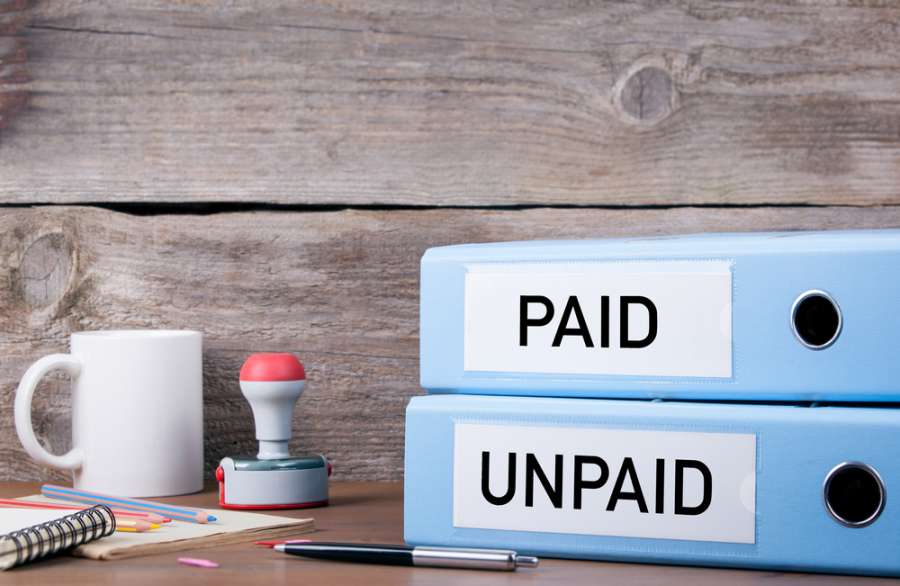For most businesses, it is critical that the collection of outstanding debts is managed efficiently to assist cash flow. Generally speaking, there are two ways to try and collect business debts owed to your company: issuing a court claim or pursuing insolvency proceedings. In this blog, we explore the key factors which need to be considered when deciding how to pursue a business debt.
Insolvency proceedings
If another company owes your business money and the debt is not disputed, you may be able to commence insolvency proceedings. When considering a winding-up petition, the court must be satisfied that there is a debt that is due and payable. In addition, the debtor will need to have demonstrated an inability to pay the debt.
From the point of view of a creditor, commencing winding-up proceedings should be regarded as a last resort and generally speaking, the winding-up procedure should not be used as a means of enforcing the debt when other processes, such as litigation through the courts or alternative dispute resolution (ADR) may be more appropriate.
However, the refusal by an otherwise solvent company to pay an undisputed debt does nonetheless entitle a creditor to present a winding-up petition. For this reason, the courts have acknowledged that insolvency proceedings may be used in certain circumstances as a method of debt collection.

Commencing winding-up proceedings
The advantages to a creditor in commencing winding-up proceedings are:
- The threat or commencement of winding-up proceedings can put considerable pressure on the debtor to pay an outstanding debt promptly and, therefore, could result in the debt being recovered quickly.
- The winding-up procedure is relatively quick and inexpensive. It may be possible to obtain a winding-up order within six weeks of presenting a petition.
- If the court grants a winding-up order, the liquidator will take control of all the company’s assets from the directors. The liquidator will have wide-ranging powers to investigate the company’s affairs and the directors’ conduct. The liquidator can bring proceedings in their own name and in the name of the company in order to maximise the assets available for distribution amongst the company’s creditors.
The disadvantages to a creditor in commencing winding-up proceedings are:
- Issuing a winding-up petition is often seen as very aggressive and can have a negative impact on any ongoing business relationships.
- Serving a statutory demand as a pre-cursor to issuing a winding-up petition may not result in the debt being paid. Issuing a winding-up petition can be costly and time-consuming, particularly if the debtor seeks to frustrate and delay the process.
- The winding-up process is not appropriate if the debt is genuinely disputed or if the company has a genuine cross-claim or right of set-off. If the court is satisfied that this is the case, the winding-up petition will be dismissed, and the petitioning creditor will be required to pay the company’s costs in relation to the winding-up proceedings. If the winding-up petition is dismissed, creditors would have to pursue a court claim in order to try and recover the outstanding debt.
Further disadvantages to a creditor in commencing winding-up proceedings
- Commencing winding-up proceedings may trigger default under the company’s loan facilities which may lead to the company’s lenders taking control of the proceedings and remove any prospect of the petitioning creditor receiving an early payment.
- Winding-up is a class remedy. Once a winding-up petition has been presented to the court, any other creditor of the company may support the petition and seek a winding-up order even if the company pays the original petition debt and the original petitioner does not seek to pursue the petition. It is also important to remember that a creditor who petitions for a company to be wound up must act in the interests of their class of creditor.
- The amount of the dividend paid to unsecured creditors will often be only a few pence for each pound of debt and maybe nothing at all.
- Even where there are assets available for distribution to a company’s creditors, there is often a substantial delay between the company entering into liquidation and the payment of a dividend to the creditors by the liquidator. This delay could be for a period of months or even years.

Issuing a court claim
As an alternative to commencing winding-up proceedings, creditors can bring a debt claim against the debtor. Such claims are normally brought in accordance with Part 7 of the Civil Procedure Rules (CPR), which governs the conduct of litigation in England and Wales.
Some key points which should be considered when deciding whether to issue a court claim are:
- While the litigation is ongoing, the debtor company will still be able to continue trading, and the existence of the litigation is unlikely to affect the company’s business reputation significantly. This may increase the creditor’s prospects of recovering the debt owed.
- If the court proceedings are defended, significant legal costs are likely to be incurred, which are unlikely to be recoverable in full from the debtor even if the claim is ultimately successful. As a general rule, approximately 60-70% of costs are recoverable by the successful party.
Part 7 court proceedings
Part 7 court proceedings are likely to take longer and involve greater expense than proceedings to wind up a company. Court proceedings involve the drafting of statements of case and witness statements (where each party sets out their position) and the disclosure of documents.
- If the court proceedings reached trial, witnesses would have to give oral evidence and be cross-examined. Other steps may be involved in the court proceedings, such as obtaining expert evidence.
- It may be possible to limit the time and costs involved in court proceedings by seeking an early determination of the claim.
- Even if a judgment is obtained against the debtor company, it may still be necessary to enforce that judgment. There are many different enforcement options, but one option is to present a winding-up petition.
- The court will expect the parties to attempt to resolve any disputes between them by utilising ADR. The court can penalise the parties in terms of costs if they fail to do so.

Contact Our Business Debt Recovery Team
If you have any more questions or would like more information regarding debt recovery for your business, you can get in touch with our Business Debt Recovery Team below.
